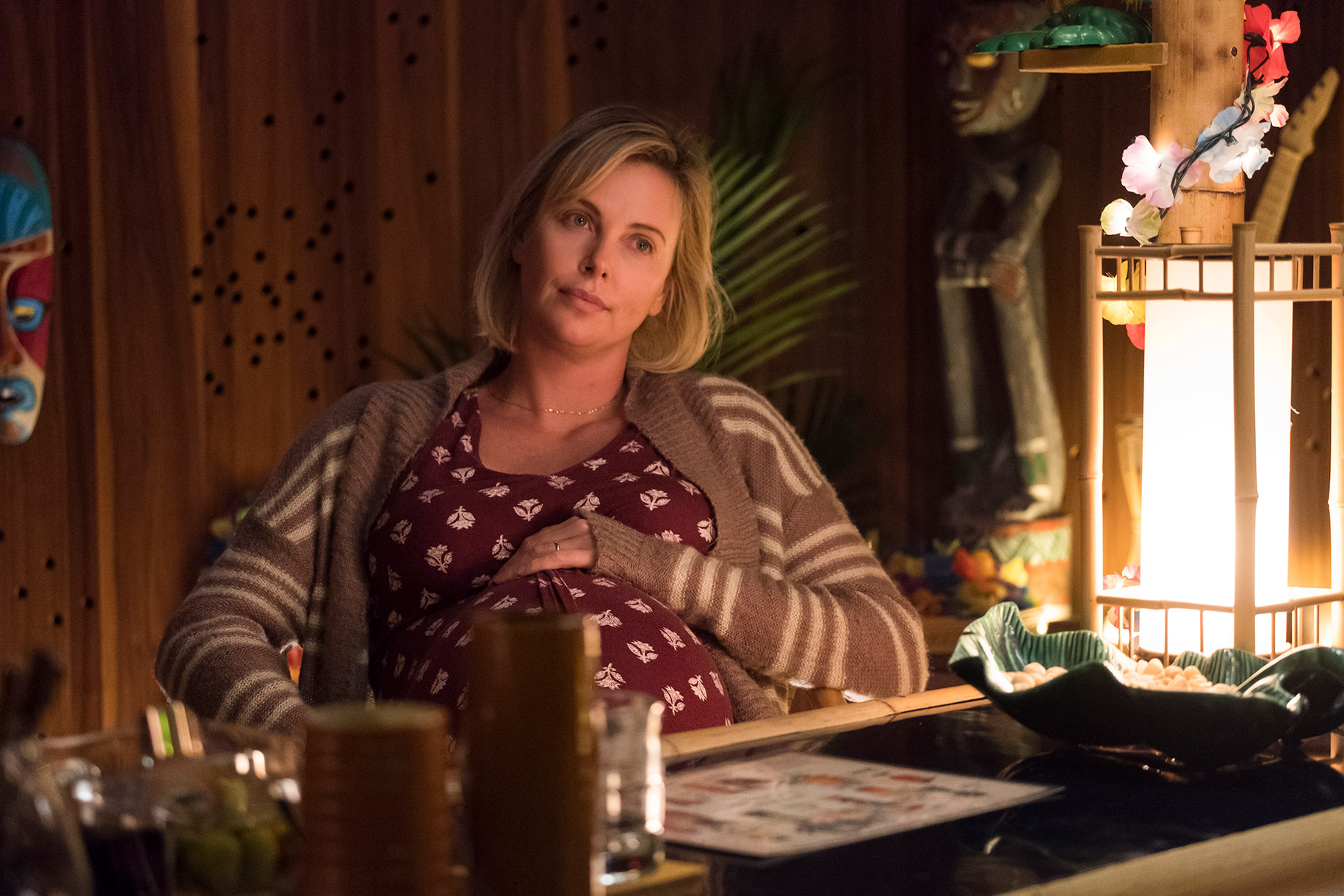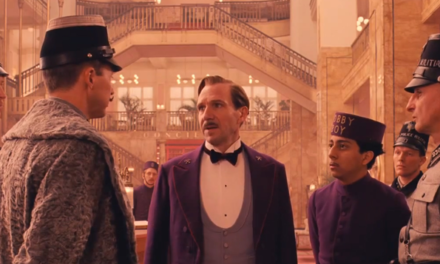Motherhood, a frequent favorite subject of Hollywood, has been the source of conflict in many a melodrama in film’s early days of glory (see the enduring popularity of stories such as “Mildred Pierce”). But filmmakers — largely male — often don’t give the topic the nuanced treatment it deserves. “Tully,” the latest collaboration between director Jason Reitman and writer Diablo Cody, delivers this nuanced treatment at times but produces inconsistent results overall.
Marlo (Charlize Theron) is an overworked mother of two expecting her third child. Her husband Drew (Ron Livingston) barely helps out his family beyond financial support, leaving Marlo to keep their fragile unit together. Their son Jonah (Asher Miles Fallica) has severe behavioral issues, frequently exhausting his mother. Shortly after her third child is born, Marlo begins to wear thin against the pressures of her daily life. Her brother Craig (Mark Duplass) offers Marlo the services of a “night nanny,” a young woman who stays the night to care for a child while the parents sleep. Marlo is reluctant to accept this offer, but her exhaustion pushes her to give the nanny a call. The young woman, Tully (Mackenzie Davis), proves to be Marlo’s foil, yet the two develop a special relationship as they gradually get to know each other.
Theron continues her string of impressive performances for Reitman and Cody, as she previously stunned in their 2011 film “Young Adult.” Her work is even better here as Marlo, her performance a devastating portrayal of the costs of motherhood and the strength necessary to live with them. Theron is sharp as a tack, radiating a witty bluntness and natural sensitivity that feel as if she has lived as this character for her entire life. She’s the soul of the film and deftly carries it through all of its tonal twists and turns. Davis is equally incredible, peeling away layers of depth behind the outer veneer of a manic pixie dream girl archetype. At first coming across as a laughable hipster fairy, she reveals a sense inner mystery and wise-beyond-her-years intuition. Tully is a remarkable feat shared between Cody and Davis, who crafted one of the most rich and beguiling screen characters of the year.
At the core of the film is Cody’s script, and this is easily the strongest point. It pulls everyone involved into its orbit, driving the entire production and walking the tightrope between the comic and the tragic with expertise. “Tully” is a funny film at its heart, and yet a warts-and-all portrait of motherhood. It paints the struggles of motherhood in such detail that it could have only been written from a truly authentic place. That authenticity is key to the film’s nuanced character study. It’s a deeply feminist film — the type that the world needs more of — which tackles real issues (such as postpartum depression) that are not often portrayed on film. But Reitman does not meet Cody’s skill level or investment in the material. He is a solid director, working well with strong scripts that take the lead. His montages work in relative harmony with Cody’s sense of humor, and most of his aesthetic choices make sense in serving the story, even if none of them stand out as being particularly notable. Overall, it’s quite well-shot by Eric Steelberg, and Rob Simonsen’s score propels without manipulative distraction.
However, Cody and Reitman hit a massive speed bump in the film’s third act, one that nearly derails the entire experience. In a twist that comes out of pretty much nowhere, the film suddenly transitions from a slice-of-life style comedy-drama into a psychological fairy tale. There isn’t much to smooth this transition, aside from a handful of head-scratching magical dream sequences that occur in the first two acts. One could argue that this is meant to jar the viewer, but it doesn’t stick the landing, mostly due to Reitman’s hand. Stylistically, he’s a literal filmmaker at heart, one that doesn’t excel in these situations of heightened metaphor. At the script level, the twist is a daring gamble on Cody’s part, even if it comes across as more of a means to make an explicit point, rather than an organic evolution of the narrative. In the end, the fairy tale turn feels like an unnecessary move, one that quickly ties itself up into a happy ending without much time to simmer in the viewer’s mind.
Despite this arguably tremendous misstep, “Tully” deserves to be seen and discussed. Anchored by two extraordinary performances, it’s a portrait of strong, complicated women and the lives they lead. The majority of the film, at least in its middle section, is composed of scenes of women simply talking — talking about their experiences, their struggles, the things they love and for which they live. These moments make the film something special, and its refreshing nature should be a shame when many films have the opportunity to do something so simple. “Tully” is at its best when it finds the humor and pathos in real things, making some profound observations about women’s lives along the way.
Grade: B





